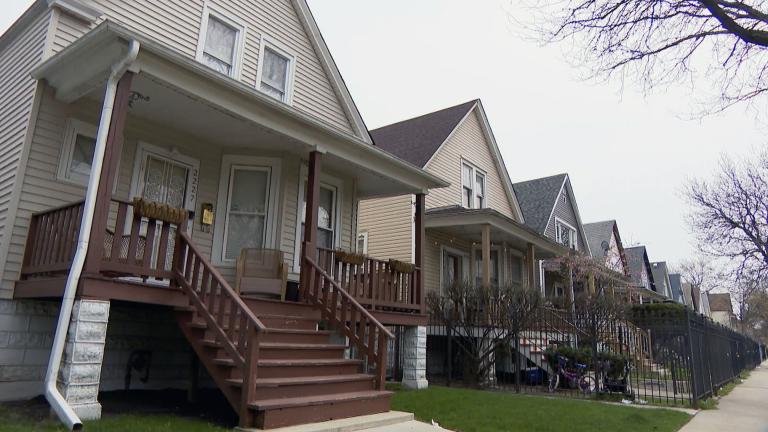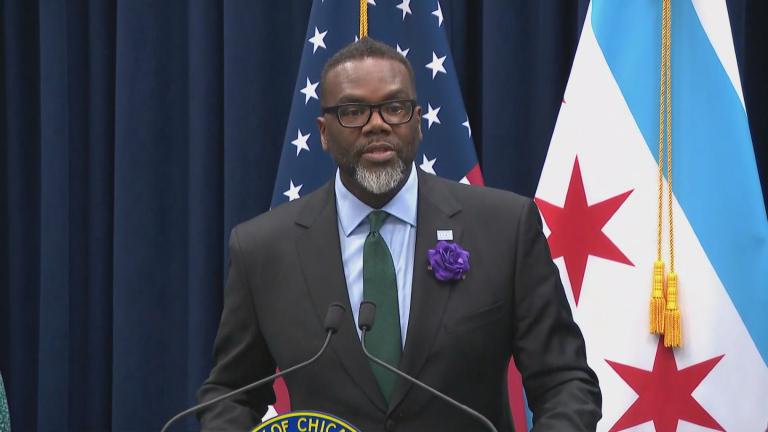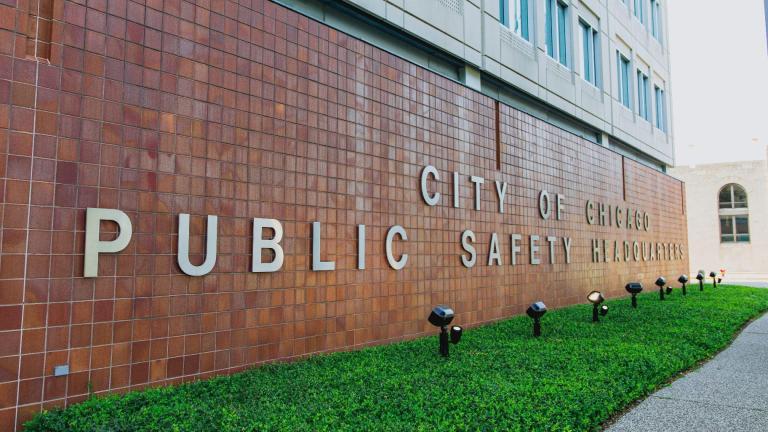Mayor Lori Lightfoot said Wednesday the city faces a projected $127.9 million budget shortfall in the 2023 fiscal year.
The budget gap is the smallest since 2019, when the city’s budget gap was $97.9 million. Chief Financial Officer Jennie Huang Bennett said the estimated deficit for 2023 was “very small” when compared to the size of the city’s overall budget.
That is an indication that Chicago is “on a true path to financial recovery and financial stability” after the damage caused by the COVID-19 pandemic, Lightfoot said.
This year’s shortfall comes after city officials closed a $733 million budget gap in their 2022 spending plan, which Lightfoot called a “recovery budget” after the economic collapse triggered by the continuing COVID-19 pandemic. The city’s 2023 budget will be its “stability budget,” Lightfoot said during a speech at the Chicago Cultural Center.
Lightfoot’s proposal includes a $42.7 million property tax hike to offset the surging cost of inflation.
Under a measure included by Lightfoot in her 2021 budget, property taxes would have risen $85.4 million, or 5%, because of the rapid increase in the cost of living. Lightfoot said a 2.5% hike is sufficient.
“This is the fair thing to do,” Lightfoot said, telling reporters the owners of a home worth $250,000 would pay $34 more a year to cover the increase tied to inflation. “That’s about the price of Al’s Beef sandwiches — hot, dipped and with extra cheese — for a family of four,” Lightfoot said.
In recent weeks, several members of the City Council have called on Lightfoot to drop that planned increase to help Chicago property owners cope with the surge in the cost of food, gas and other necessities.
Ald. Pat Dowell (3rd Ward), the chair of the City Council’s Budget Committee, said that hike would be a “hard sell” during an election year.
“The council will definitely have a lot of questions about that,” said Dowell, who was the only member of the City Council to attend Lightfoot’s speech, which kicks off the monthslong process that will end with the adoption of the 2023 budget before the end of the year.
Chicago’s financial picture has been buoyed by the city’s red-hot real estate market and nearly $2 billion in federal aid designed to help the city withstand the ravages of the pandemic. Chicago ended 2021 with a surplus of $318 million, according to the city’s annual financial report.
Chicago’s 2023 spending plan is the first that will reflect revenues from a casino, with Bally’s cutting the city a $40 million check after the City Council gave their plan to build a casino and resort in River North the green light and a temporary casino set to open at the Medinah Temple next summer.
In addition, city officials still have more than $152 million to spend from the federal COVID-19 relief package signed into law by President Joe Biden in March 2021.
However, the city’s finances will continue to be pinched by soaring pension payments, as the city complies with a state law that requires Chicago’s four funds be funded at a 90% level by 2045, ensuring they can pay benefits to employees as they retire.
Chicago’s $16.7 billion budget for 2022 included nearly $2 billion in spending on affordable housing, mental health, violence prevention, youth job programs and help for unhoused Chicagoans. Those funds can be spent during 2022, 2023 and 2024, under federal law.
Much of the debate over the 2023 budget — which will take place simultaneously with the elections for mayor and all 50 alderpeople — is likely to focus on whether those programs, funded by the Chicago Rescue Plan, will continue or be expanded.
Lightfoot’s 2022 spending plan would not have passed without the support of progressive members of the City Council.
The Chicago Rescue Plan calls for the city to borrow $660 million to fund its programs. That debt has not yet been incurred, Huang Bennett told reporters hours after Lightfoot’s speech.
It is not clear how much of the plan’s funding will carry over into 2023 and beyond, Budget Director Susie Park told reporters.
In addition, Huang Bennett could not tell reporters how much it will cost taxpayers to cover the next installment of the debt the city took on to fund the city’s $1.4 billion infrastructure plan. In 2022, property taxes rose $25 million to cover the first payment.
The debate over the police budget — which totaled $1.72 billion in 2021 — will also be a flashpoint during negotiations over the city’s budget. Progressive members of the City Council are likely to push to reduce it to instead fund violence prevention efforts and to strengthen the city’s social safety net.
At the same time, conservative members of the City Council are likely to push for more money to hire more officers and help those on-the-job cope with the trauma of policing.
In 2020, the city faced a budget gap of $838 million. In 2021, the city faced a budget gap of $1.2 billion.
Contact Heather Cherone: @HeatherCherone | (773) 569-1863 | [email protected]







